On 24 January 1892, Jules Massenet left for Vienna and stayed at the famous Hotel Sacher, across from the stage entrance of the opera house. He had arrived to oversee rehearsals for his new opera Werther, and wrote, “All the artists were gathered around the piano. As they saw me they rose in a body and bowed in salutation… and a little nervous and trembling all over, I sat down at the piano. The work was absolutely in shape. All the artists could sing their parts from memory. The hearty demonstrations they showered on me at the intervals moved me so much that I felt tears in my eyes. At the orchestra rehearsal, this emotion was renewed. The execution was perfection; the orchestra, now soft, now loud, followed the shading of the voice so that I could not shake off the enchantment.”
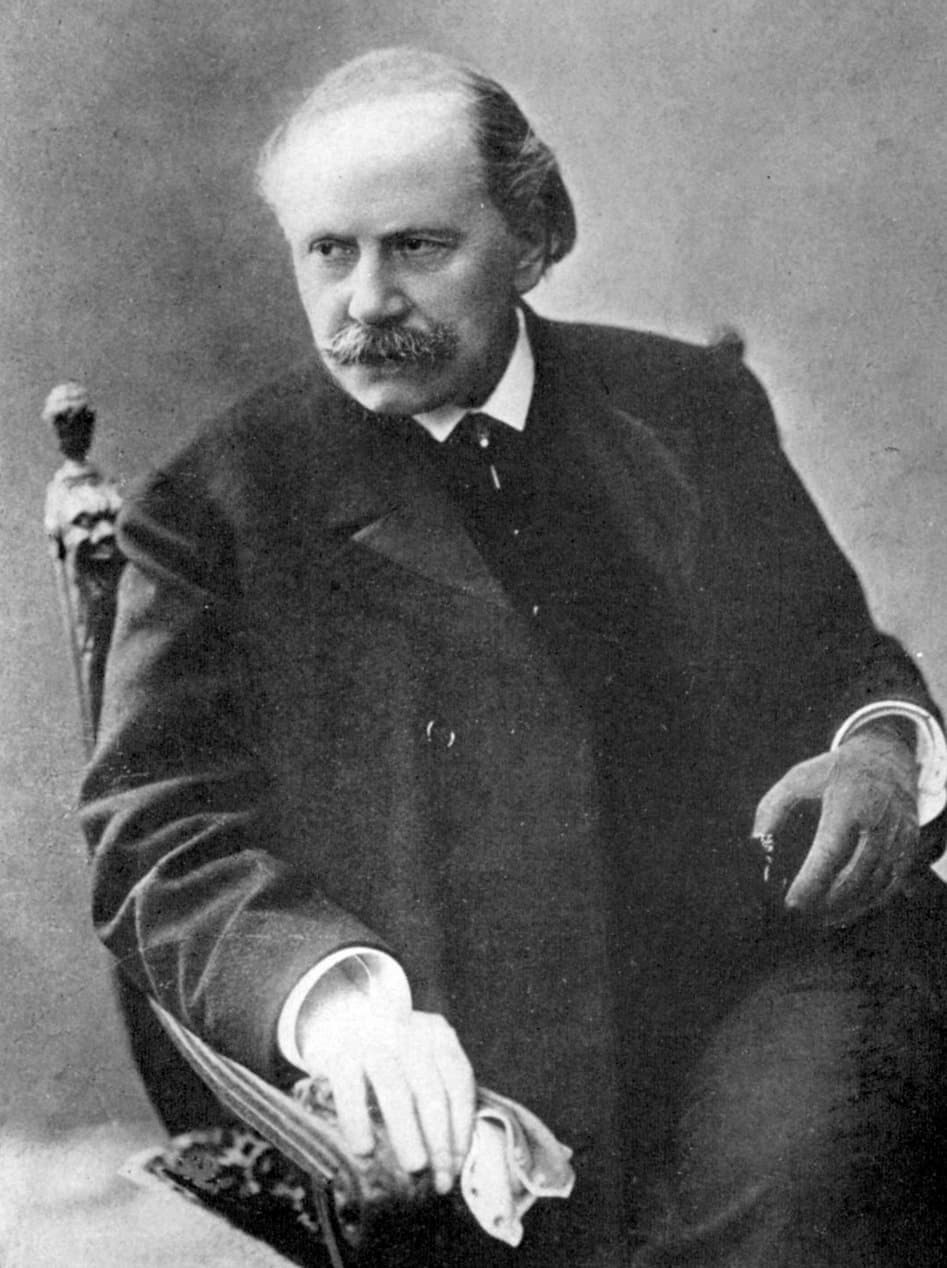
Jules Massenet
The premiere of Werther took place on 16 February 1892 in a German version translated by Max Kalbeck. It featured the Belgian tenor Enrest Van Dyck, famous for his portrayals of Parsifal and Lohengrin, and Marie Renard, a soprano who had also sung Manon in Vienna.
Jules Massenet: Werther, “O nature, pleine de grace”
Critic’s Comment
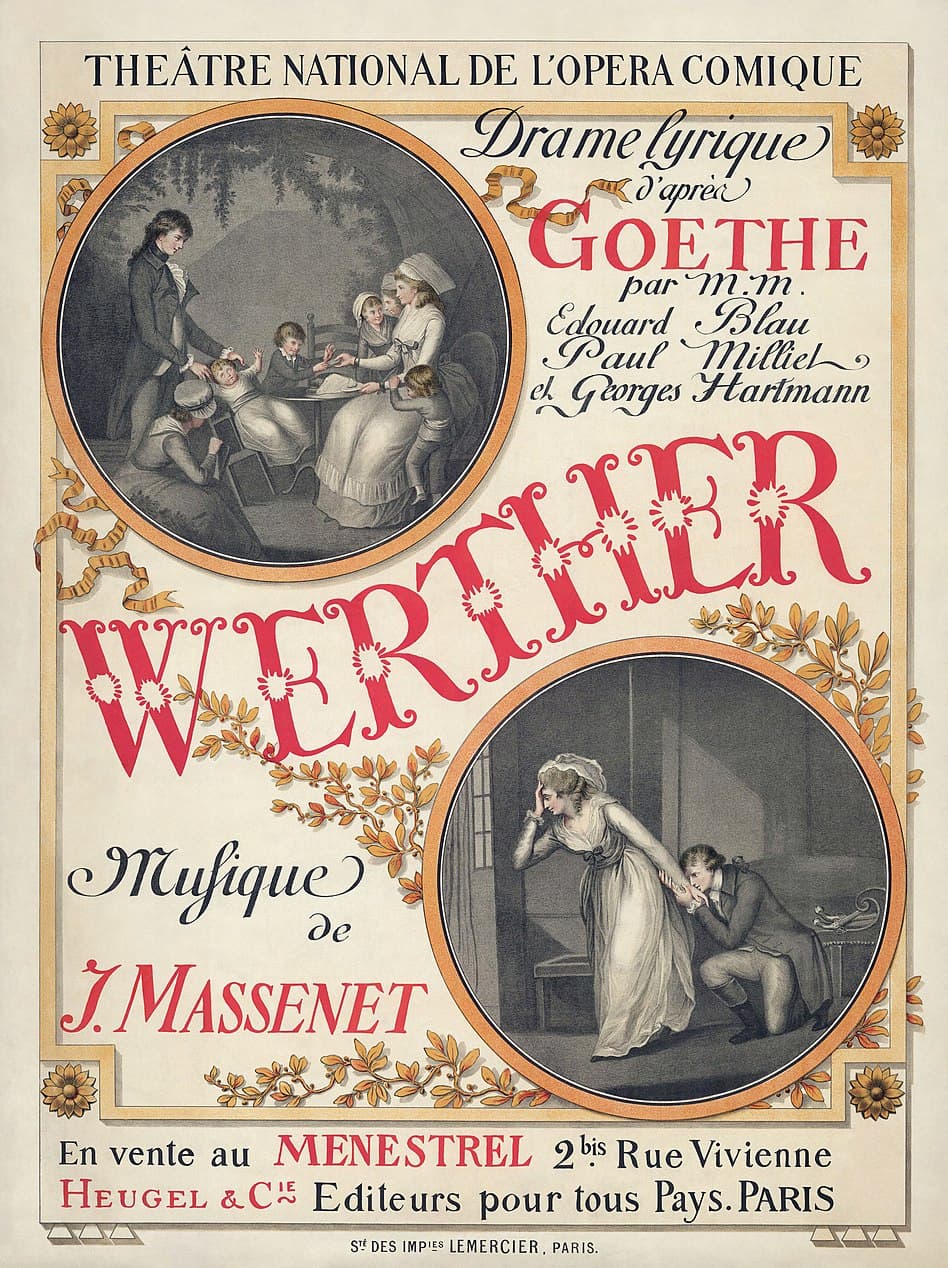
Poster for the première of Massenet’s Werther.
The opera was first performed in Paris on 16 January 1893 by the Opéra-Comique in its temporary home at the Théâtre Lyrique. A critic wrote, “the large shadow of Wagner hovers over the dramatic music of our time, but Wagner belongs in a class with Bach and Beethoven, to be studied and admired but not copied. Massenet, in treating one of the masterpieces of foreign literature, has achieved a clarity of style that is eminently French.”
Massenet’s Inspirations
The masterpiece of foreign literature, which provides the foundations for this Drame lyrique, is non-other than Goethe’s novel The Sorrows of Young Werther of 1774. The novel is based both on fact and on Goethe’s own early life. At age 23, Goethe fell in love with Charlotte Buff, daughter of the magistrate bailiff of Wetzlar. In the end, Charlotte married Johann Christian Kestner instead, and at the same time a mutual friend, Karl Wilhelm Jerusalem, shot himself for the love of a married woman with pistols belonging to Kestner. The publication of Werther, with its implicit endorsement of suicide, caused a sensation. The church was furious but early dramatizations led to operas on the subject as early as 1792 in Paris and 1802 in Venice.
Jules Massenet: Werther, “Du gai soleil”
The Novel The Sorrows of Young Werther by Goethe
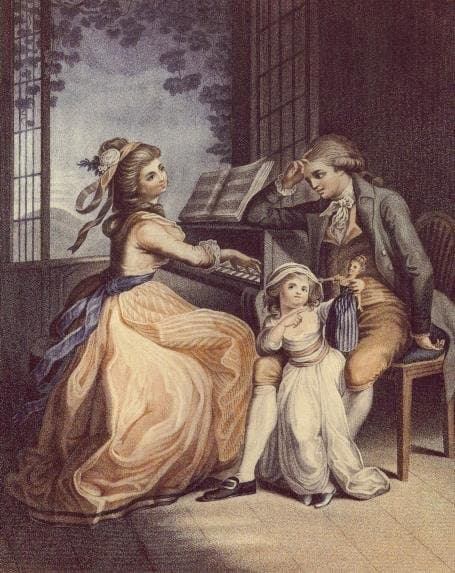
Charlotte and Werther
Scholars are still not sure why Massenet picked up the novel nearly a century later when the sensation had long passed. Massenet mentioned the idea of writing a Werther opera as early as 1880, but the idea only solidified after Massenet took a trip to Bayreuth to hear Parsifal in 1886. On his return trip, Massenet and Georges Hartmann stopped in the town of Wetzler, and visited the house where Goethe had written his “immortal romance.” Massenet remembers, “I knew the Werther letters and I had a thrilling recollection of them. I was deeply impressed, and as we were coming out Hartman said to me, ‘I have something to complete the obviously deep emotion you have felt.’ He reached into his pocket and produced a book with a binding yellow with age. It was the French translation of Goethe’s romance.” Apparently, Massenet and Hartman visited a beer hall and the composer remembered, “It is needless to tell what I endured in that thick, foul air laden hall with the bitter odor of beer. But I could not stop reading those burning letters full of the most intense passion.”
Jules Massenet: Werther, “Qui m’aurait dit la place,” “Va! Laisse couler mes larmes”
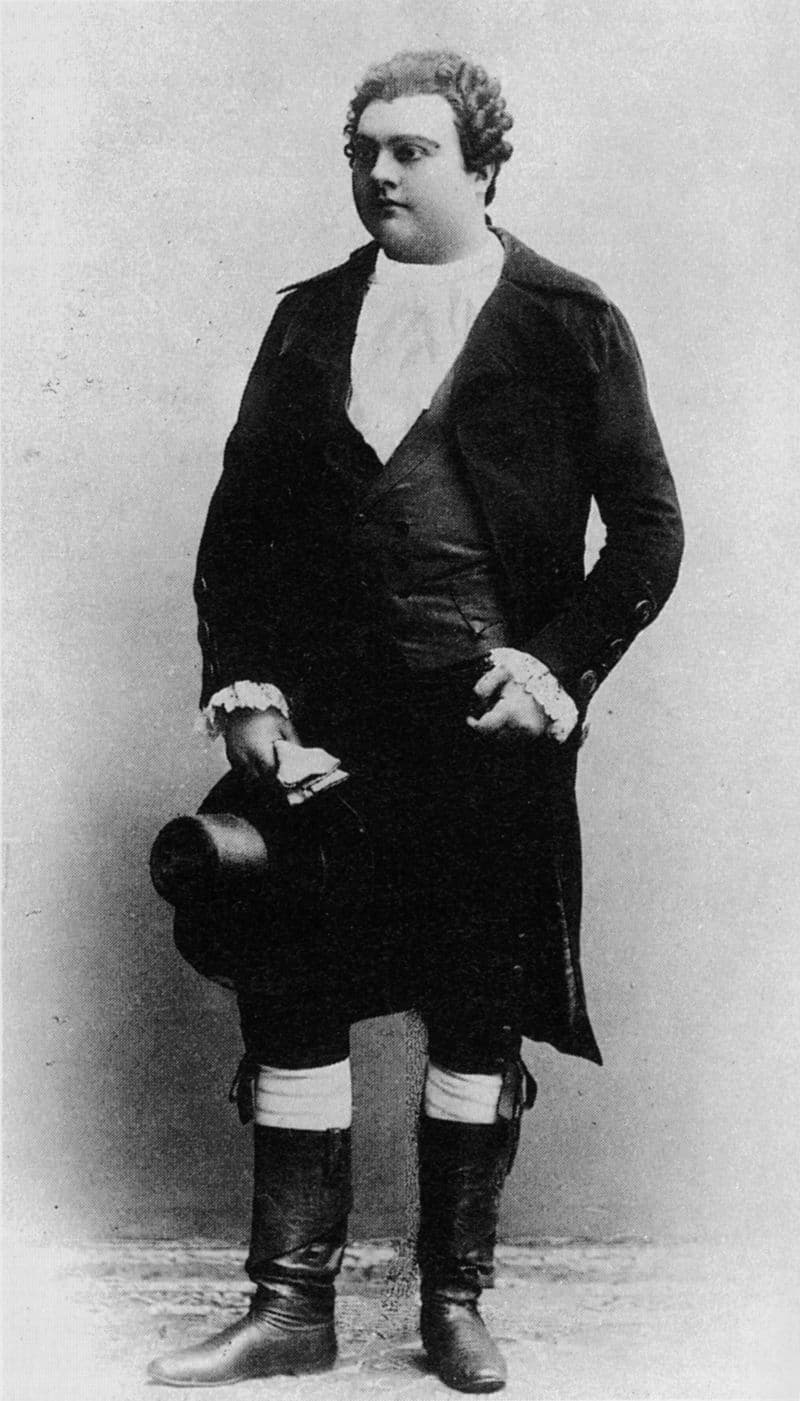
Ernest van Dyck in the title role of the opera Werther
The novel is cast in the form of letters, with Goethe acting as the editor to describe the protagonist’s suicide. The libretto, fashioned by Edouard Blau, Paul Milliet, and Georges Hartmann, is a skillful adaptation with “all unnecessary details expunged. There is no chorus as everything is dramatically concentrated on the central relationship.” It has been suggested that the libretto is one of the best Massenet was given. “While paying Gallic lip-service to the Romantic hyperbole of Goethe, there is a corresponding sparseness of syntax that leaves the music plenty to do other than just illustrate and intensify. There is a lightly sketched-in and satisfying time structure, from summer to winter, from lightness to dark, from the sun that Werther invokes at his first entry to the moon that sheds light on his first meeting with Charlotte and his death.”
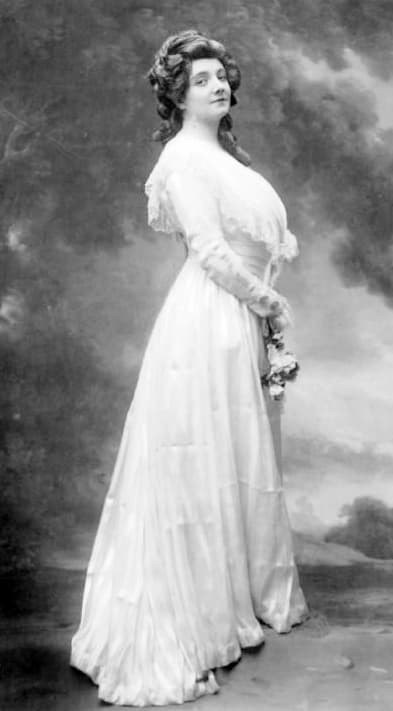
Claire Croiza as Charlotte in Massenet’s Werther.
Essentially, it is still a number opera, but in no other Massenet opera is the melodic inspiration so rich. In fact, it is the psychological penetration through words and notes that is most impressive. “Werther’s passion noticeably intensifies once he realizes that his love for Charlotte is doomed.”
For more of the best in classical music, sign up to our E-Newsletter
Jules Massenet: Werther, “Pourquoi me réveiller?”
